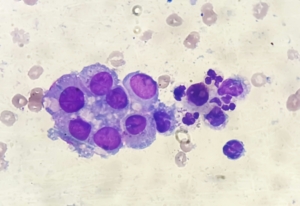
Biomarker predicts response to TNF blockers
A new assay that accurately measures how arthritis patients respond to treatment with TNFalpha blockers such as adalimumab, open up the way to predict efficacy.
The new assay, created by researchers at Sanquin Research in Amsterdam and Pfizer, allowed physicians to measure blood concentrations of TNFalpha in arthritis patients undergoing anti-TNFalpha treatment with Abbvie’s blockbuster drug adalimumab.
Analysing the blood of 193 RA patients treated with adalimumab, the team headed by Theo Rispens found the NF circulating blood concentration increased 50-fold during the first six months of treatment before reaching a stable concentration. A similar effect was observed in 30 volunteers who received one dose of adalimumab, indicating circulating TNF concentrations were not associated with disease activity during treatment. Furthermore, lower concentrations of TNF after the fourth week of treatment were associated with more antibodies against the drug and a lower chance of remission after 52 weeks. The researchers say that early TNF concentrations could be used as a predictor of future patient responses, but must be validated in studies with longer follow-up periods.
So far, treatment responses vary between patients, and efforts to understand how TNF promotes Rheumatoid arthritis (RA) have been complicated by the difficulty of accurately measuring TNF concentrations in patients undergoing TNF inhibition. RA affects 54.4 million adults in the US and is a leading cause of disability worldwide.
We demonstrated that circulating TNF concentrations typically remain high, up to even half a year after adalimumab treatment discontinuation. The issue is: when did the treatment really stop? This is relevant when evaluating switch studies, studies aimed at evaluating the success of treatment discontinuation upon reaching remission, and also calls into question the effectiveness of a temporal discontinuation of treatment in case of an infection or surgery.


 Unsplash+
Unsplash+
